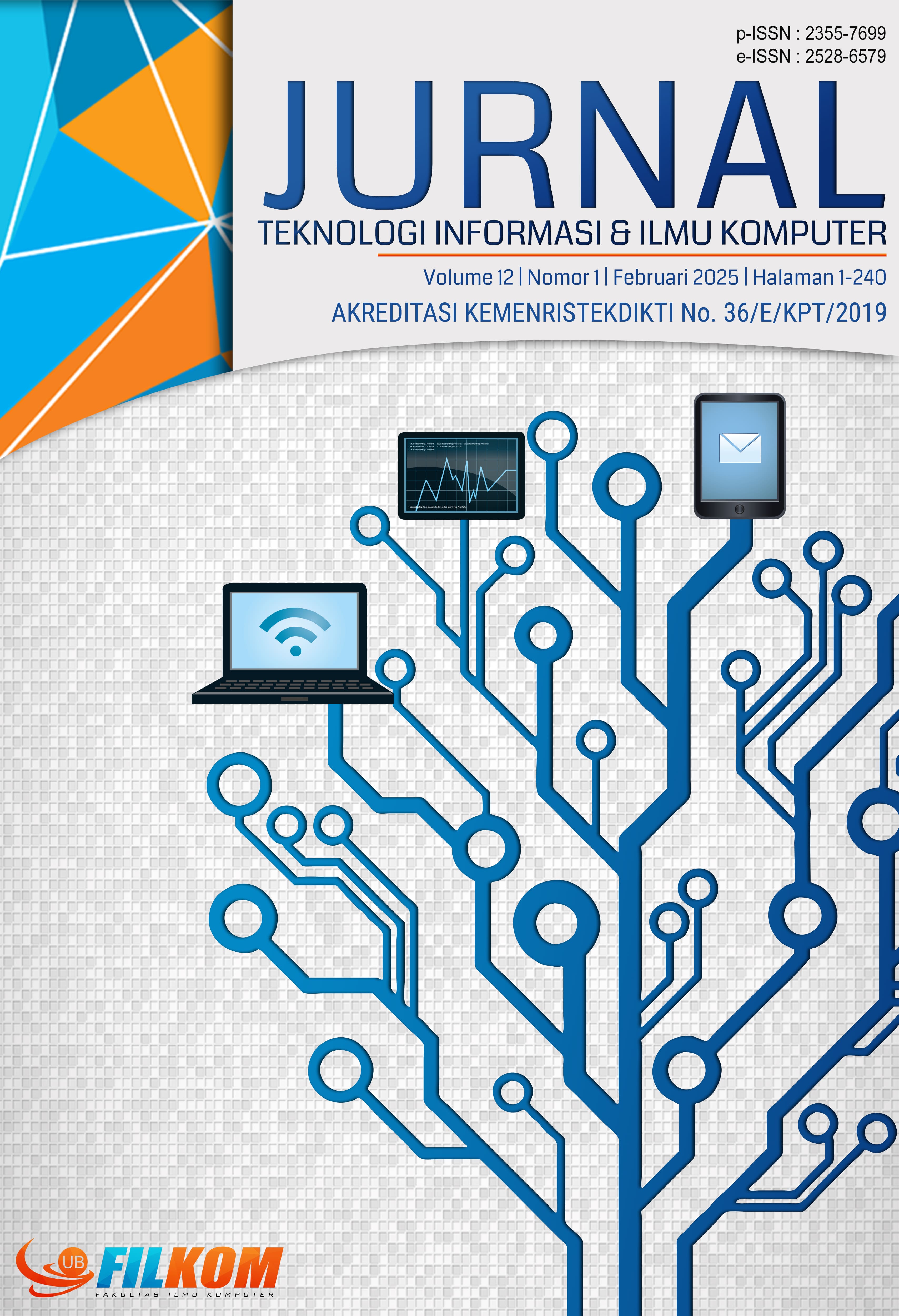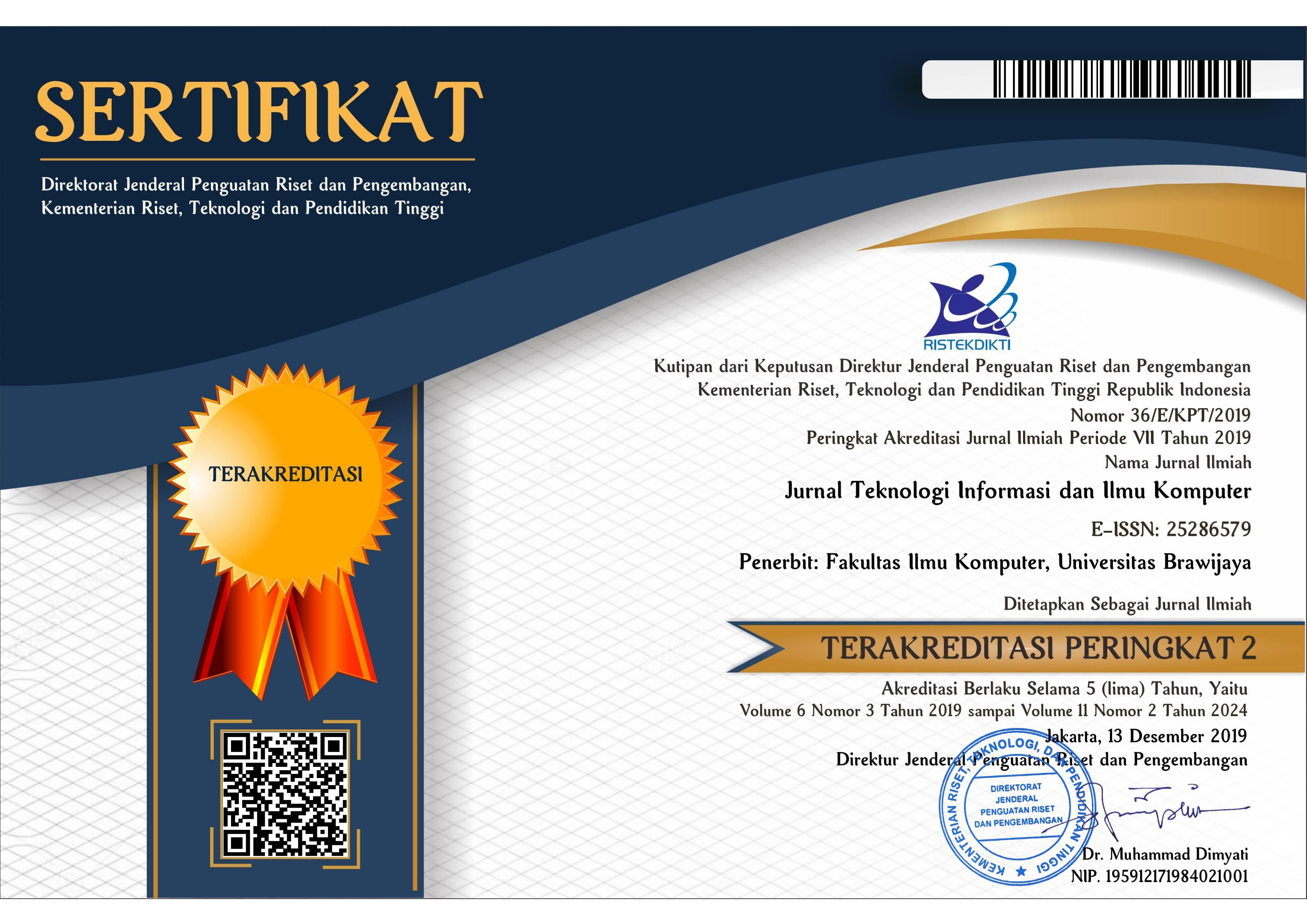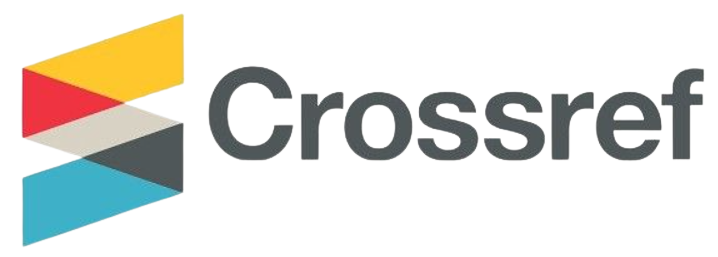Pengaruh Metode Design Thinking Terhadap Kemampuan Pedagogi Bagi Mahasiswa Calon Guru Informatika
DOI:
https://doi.org/10.25126/jtiik.2025129382Kata Kunci:
design thinking, kemampuan pedagogi, mahasiswa, PTI UBAbstrak
Design thinking menjadi salah satu metode pembelajaran yang dapat digunakan oleh guru dalam mendukung pembelajaran. Hal ini sesuai dengan capaian SDG yang digaungkan oleh PBB, bahwa Pendidikan perlu ditingkatkan kualitasnya. Peningkatan kualitas ini melalui pemilihan metode pembelajaran yang dapat meningkatkan kemampuan abad 21 dan juga termasuk kemampuan pedagogi. Kemampuan pedagogi diharapkan mampu dikuasai oleh mahasiswa lulusan dari program studi Pendidikan Teknologi Informasi Universitas Brawijaya (PTI UB) untuk menjadi guru yang professional. Tujuan dari penelitian ini adalah mengetahui pengaruh design thinking terhadap kemampuan pedagogi. Pendekatan penelitian yang digunakan adalah kuantitatif dengan metode penelitian expost facto melalui survei. Populasi dari penelitian ini semua mahasiswa aktif dari PTI UB dan teknik sampling yang digunakan adalah purposive sampling. Hal ini karena sampelnya adalah mahasiswa PTI UB yang telah melaksanakan praktik lapangan persekolahan. Instrumen penelitian yang digunakan adalah kuesioner dengan skala Likert. Instrumen penelitian ini telah divalidasi dan diuji reliabilitas sebelumnya agar data yang diperoleh nantinya data tidak bias. Teknik validasi yang digunakan adalah content validity dengan ahli Bahasa Indonesia dan juga ahli design thinking. Berdasarkan proses validasi tersebut, instrumen dinyatakan layak untuk digunakan pengambilan data dengan revisi minor terutama pada bagian penyusunan kalimat. Responden yang mengisi berjumlah 26 orang dan menghasilkan data normal, linear dan tidak memiliki heterokedastisitas. Selanjutnya dilakukan uji regresi linear sederhana dan menghasilkan nilai 0.372 yang artinya design thinking memiliki pengaruh pada kemampuan pedagogi mahasiswa calon guru informatika.
Abstract
Design thinking is one of the learning methods that can be used by teachers to support learning. This is in accordance with the achievement of SDGs echoed by the UN, that education needs to be improved in quality. This quality improvement is through the selection of learning methods that can improve 21st century skills and also include pedagogical skills. Pedagogical skills are one of the skills expected to be mastered by graduates of the Information Technology Education study program, Universitas Brawijaya (PTI UB). This ability will later help graduates to become professional teachers. The purpose of this study was to determine the effect of design thinking on pedagogical skills. The research approach used was quantitative with an ex post facto research method through a survey. The population of this study were all active students from PTI UB and the sampling technique used was purposive sampling. This is because the sample was PTI UB students who had carried out school field practice. The research instrument used was a questionnaire with a Likert scale. This research instrument has been validated and tested for reliability before so that the data obtained later is not biased. The validation technique used is content validity with Indonesian language experts and also Design thinking experts. Based on the validation process, the instrument was declared suitable for use in data collection with minor revisions, especially in the sentence structure section. The respondents who filled in were 26 people and produced normal, linear data and did not have heteroscedasticity. Furthermore, a simple linear regression test was carried out and produced a value of 0.372, which means that design thinking has an influence on the pedagogical abilities of prospective informatics teacher students.
Downloads
Referensi
APRIANTO, M.T.P., KUSWANDI, D. & SOEPRIYANTO, Y., 2023. Memperkuat Keterampilan Berpikir Kreatif Melalui Model Pembelajaran Proyek Berlandaskan Metode Design Thinking. JKTP: Jurnal Kajian Teknologi Pendidikan, 6(3), pp.132–142.
AVSEC, S., 2021. Design thinking to enhance transformative learning. Global Journal of Engineering Education, [online] 23(3), pp.169–175. Available at: <http://www.wiete.com.au/journals/GJEE/Publish/vol23no3/01-Avsec-S.pdf>.
Bappenas, 2024. SDGs KNOWLEDGE HUB Agenda 2030 untuk Pembangunan Berkelanjutan. [online] Available at: <https://sdgs.bappenas.go.id> [Accessed 21 Apr. 2024].
BARAN, E. & ALZOUBI, D., 2024. Design thinking in teacher education: Morphing preservice teachers’ mindsets and conceptualizations. Journal of Research on Technology in Education, [online] 56(5), pp.496–514. Available at: <https://www.tandfonline.com/doi/full/10.1080/15391523.2023.2170932>.
CALAVIA, M.B., BLANCO, T., CASAS, R. & DIESTE, B., 2022. Improving Design Project Management in Remote Learning. Sustainability (Switzerland), [online] 14(17), pp.1–25. Available at: <https://www.mdpi.com/2071-1050/14/17/11025>.
CHEN, K., CHEN, J. & WANG, C., 2023. The effects of two empathy strategies in design thinking on pre-service teachers’ creativity. Knowledge Management and E-Learning, [online] 15(3), pp.468–486. Available at: <https://www.kmel-journal.org/ojs/index.php/online-publication/article/view/559>.
DAM R., SIANG T., 2021. Design Thinking: Get Started with Prototyping. Interaction DesignFoundation. https://www.interaction-design.org/literature/article/design-thinking-getstarted-with-prototyping
Department of Economic and Social Affairs, 2024. “Design Thinking in STEM”: Education project combining STEM education, design based education and the challenges addressed by the SDGs. [online] United Nations. Available at: <https://sdgs.un.org/partnerships/design-thinking-stem-education-project-combining-stem-education-design-based-education> [Accessed 21 Apr. 2024].
ELSAYARY, A., 2022. Developing Preservice Teachers’ Design Thinking Mindset Using Interactive Technology. In: 13th International Conference on Society and Information Technologies: ICSIT. [online] pp.37–40. Available at: <https://www.iiis.org/DOI2022/EB791YE/>.
Fakultas Ilmu Komputer, F., 2020. Pedoman Kurikulum Prodi PTI. Malang: Fakultas Ilmu Komputer.
FILKOM, 2023. Enam Program Studi FILKOM Dapatkan Akreditasi Internasional AQAS. [online] Fakultas Ilmu Komputer Universitas Brawijaya. Available at: <https://filkom.ub.ac.id/2023/02/03/enam-program-studi-filkom-dapatkan-akreditasi-internasional-aqas/> [Accessed 21 Apr. 2024].
Kemendikbudristek, S.D.J.P.T., 2020. Program Studi. [online] Kemendikbudristek. Available at: <https://pddikti.kemdikbud.go.id/search/pendidikan teknologi informasi> [Accessed 21 Apr. 2024].
KICKBUSCH, S., WRIGHT, N., STERNBERG, J. & DAWES, L., 2020. Rethinking learning design: Reconceptualizing the role of the learning designer in pre-service teacher preparation through a design-led approach. International Journal of Design Education, [online] 14(4), pp.29–45. Available at: <https://www.scopus.com/record/display.uri?eid=2-s2.0-85090587052&origin=scopusAI>.
LIN, Y.-Y. & CHENG, M.-T., 2015. The integration of design thinking into the process of developing a serious educational game and its influence on technological pedagogical content knowledge: Taking the case of a pre-service teacher as an example. In: International Conference on Computers in Education (ICCE). [online] Available at: <https://www.scopus.com/inward/record.uri?eid=2-s2.0-85039914993&partnerID=40&md5=ac7bddb38d6c44086b1fdc2058615e02>.
LIU, X., GU, J. & XU, J., 2024. The impact of the design thinking model on pre-service teachers’ creativity self-efficacy, inventive problem-solving skills, and technology-related motivation. International Journal of Technology and Design Education, [online] 34(1), pp.167–190. Available at: <https://www.scopus.com/record/display.uri?eid=2-s2.0-85146392889&origin=scopusAI>.
LUTHFI, M.I. AND SEPTIYANTI, N.D., 2023. DESIGN THINKING UNTUK ANALISIS MASALAH PEMBELAJARAN DARING PADA MASA PANDEMI COVID-19 DI INDONESIA. DECODE: Jurnal Pendidikan Teknologi Informasi, 3(2), pp.193–204.
MARDIAH, A., RAHMAWATI, Y., HARUN, F.K.C. & HADIANA, D., 2022. Transferable skills for pre-service chemistry teachers in Indonesia: Applying a design thinking-STEAM-PjBL model.
Issues in Educational Research, [online] 32(4), pp.1509–1529. Available at: <https://www.iier.org.au/iier32/mardiah.pdf>.
PTI, 2020. Buku Kurikulum Program Studi S1 Pendidikan Teknologi Informasi (PTI) 2020-2024. Malang: Fakultas Ilmu Komputer.
RITI, Y.U.R., DEGENG, I.N.S. & SULTON, 2021. Pengembangan Model Pembelajaran Berbasis Proyek dengan Menerapkan Metode Design Thinking untuk Meningkatkan Keterampilan Berpikir Kritis Siswa Dalam Mata Pelajaran Kimia. Jurnal Pendidikan: Teori, Penelitian dan Pengembangan, 6(10), pp.1581–1587.
SADULLOH, UYOH., 2011. Pedagogik (Ilmu Mendidik). Bandung: Alfabet. Rosda Karya.
UB, L., 2020. Rencana Induk Penelitian Universitas Brawijaya Sasaran Tahap Kedua Tahun 2021-2025 untuk Menuju Daya Saing Global. [online] Malang. Available at: <https://lppm.ub.ac.id/wp-content/uploads/per-59-2020-Rencana-Induk-Penelitian-UB.pdf>.
Unduhan
Diterbitkan
Terbitan
Bagian
Lisensi
Hak Cipta (c) 2025 Jurnal Teknologi Informasi dan Ilmu Komputer

Artikel ini berlisensiCreative Commons Attribution-ShareAlike 4.0 International License.

Artikel ini berlisensi Creative Common Attribution-ShareAlike 4.0 International (CC BY-SA 4.0)
Penulis yang menerbitkan di jurnal ini menyetujui ketentuan berikut:
- Penulis menyimpan hak cipta dan memberikan jurnal hak penerbitan pertama naskah secara simultan dengan lisensi di bawah Creative Common Attribution-ShareAlike 4.0 International (CC BY-SA 4.0) yang mengizinkan orang lain untuk berbagi pekerjaan dengan sebuah pernyataan kepenulisan pekerjaan dan penerbitan awal di jurnal ini.
- Penulis bisa memasukkan ke dalam penyusunan kontraktual tambahan terpisah untuk distribusi non ekslusif versi kaya terbitan jurnal (contoh: mempostingnya ke repositori institusional atau menerbitkannya dalam sebuah buku), dengan pengakuan penerbitan awalnya di jurnal ini.
- Penulis diizinkan dan didorong untuk mem-posting karya mereka online (contoh: di repositori institusional atau di website mereka) sebelum dan selama proses penyerahan, karena dapat mengarahkan ke pertukaran produktif, seperti halnya sitiran yang lebih awal dan lebih hebat dari karya yang diterbitkan. (Lihat Efek Akses Terbuka).















